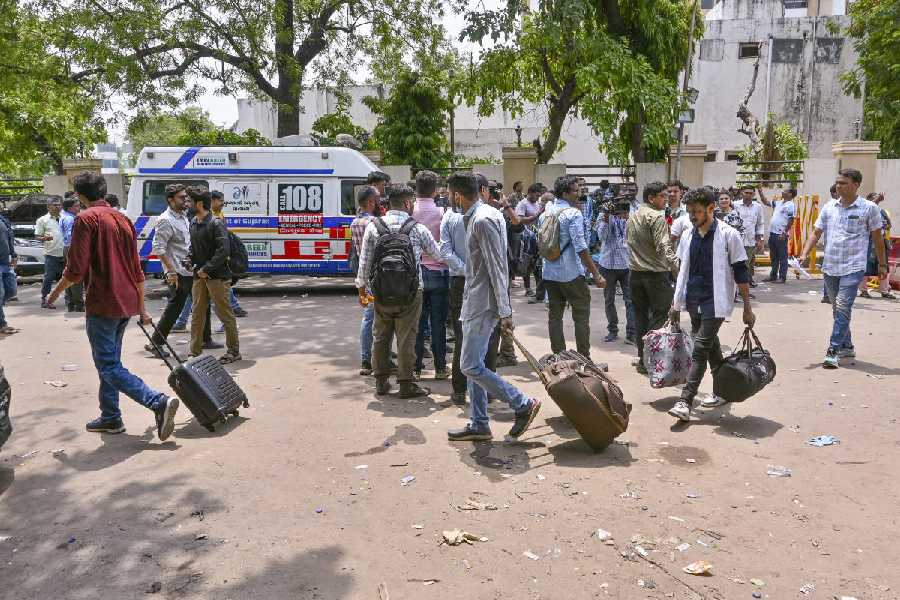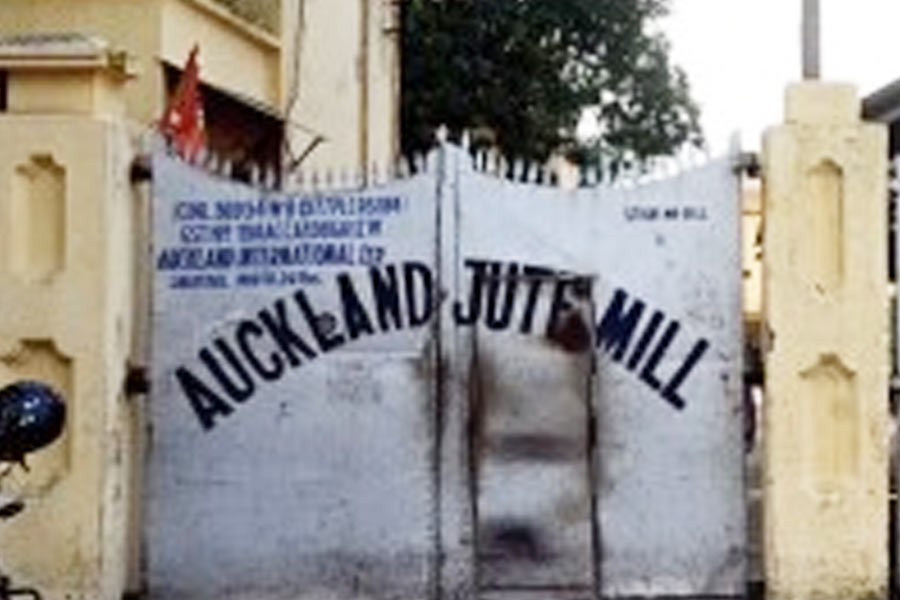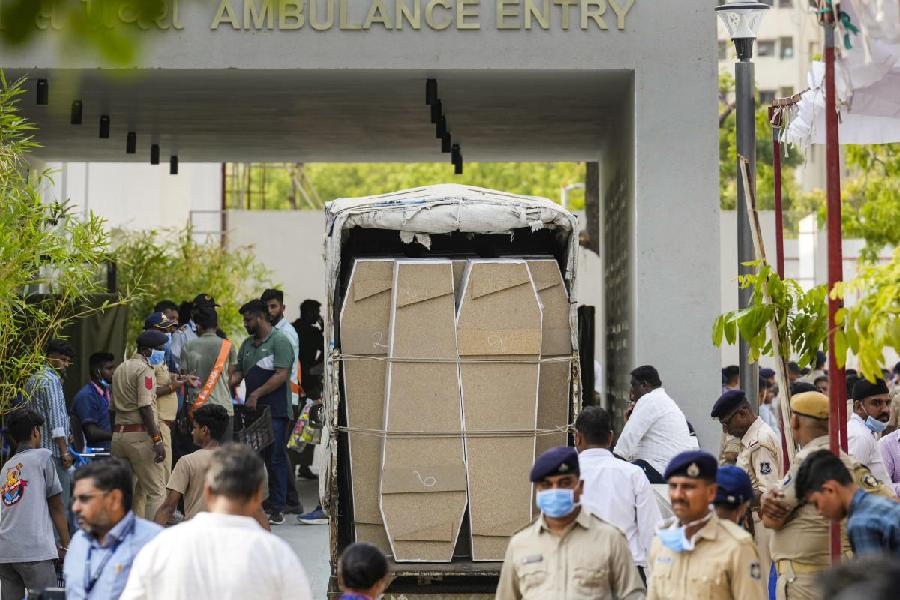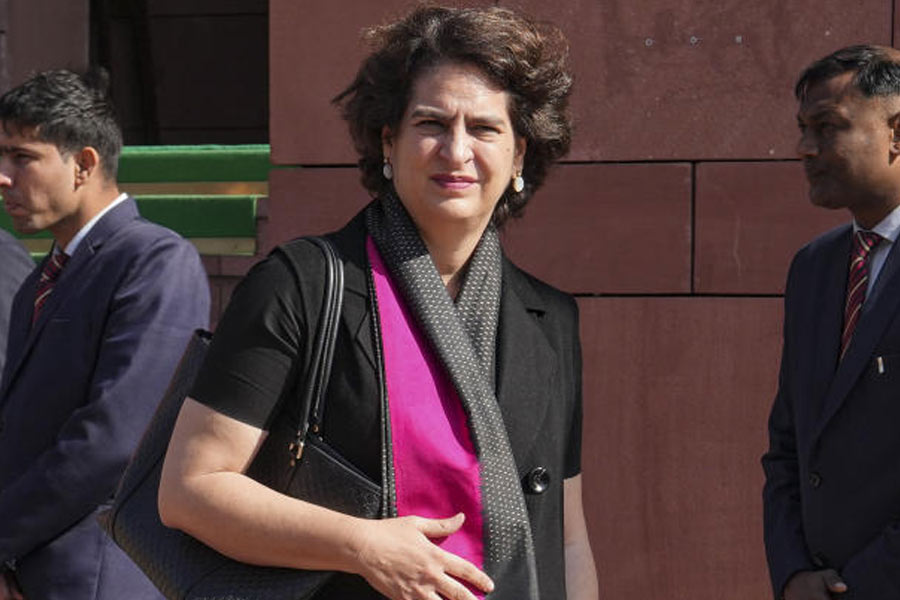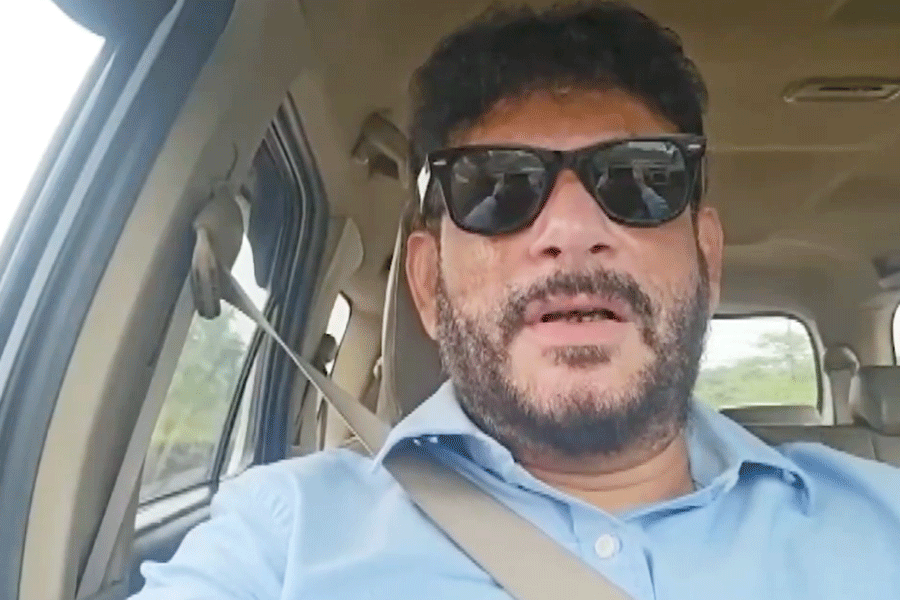.jpg) |
| Teaching remains a passion for K. Mehra. Picture by Manik Bose |
The heat was scorching and it took me nearly half an hour to reach Krishna Mehra’s house in Morabadi, who had taught at Bishop Westcott Girls’ School (BWGS), Namkom, for 35 years.
Being her student once upon a time, the visit was extremely nostalgic. The spacious bungalow stood tall, the garden still bloomed as it always did, and the table in the veranda, where we would have our lessons, stood in the same corner. Nothing had changed. Barring the frequent barks of a white pomeranian close by, all was silent.
I entered Mehra’s room and she hugged me affectionately, as she always did. I immediately felt at home.
“Age seems to have ignored you,” I said. She blushed and warmly held my hand, saying Kiran, her daughter-in-law had been waiting for me all this while and had just left for college. As I sipped fresh lime juice, she told me about her grandchildren — Venu, who did her MBA from IIM Ahmedabad, and Varun — at present in the final-year of engineering at Manipal. There was a time when I would meet her almost everyday but this meeting was different.
I was full of questions — from her childhood to all her experiences that made Mehra what she was.
“I was born in the hills and the snow fascinated me,” she began. Her father was posted in the commerce ministry of the British government, and her childhood was spent shuttling between Shimla and Delhi. “It was a routine. The British couldn’t bear the extreme weather, so they shifted to Delhi in winter and to Shimla in the summer. We, too, had to do the same.”
So, she was in St Thomas when in Shimla and Lady Irwin Girls’ School, when in Delhi, she laughed. With her father holding a post with the British, I was curious to know if the national movement attracted her, or if it was considered a taboo to speak about it at home. “I was young and initially the Independence struggle didn’t register. But I loved taking autographs of political leaders,” she said.
She recalled her meeting Mahatma Gandhi. “Gandhiji was on his way to a prayer meeting. I remember what he had said on being approached for the autograph. Main harijan kosh ke liye paanch rupaiye leta hoon (I take Rs 5 for the harijan fund),” she recalled.
As she described the clandestine manner in which she took out a five-rupee note from her piggybank to give to Bapu in return of his hastakshar, I could see how much she still cherished the memory.
After a sheltered childhood, what was college like? “I did my graduation in English and psychology from the Indraprastha College, Delhi. Participation in the Independence movement was initially a coercion,” she admitted.
But once she was into it, there was no looking back. And how did her parents react to this? “Not speaking against the British was their compulsion. If we do that openly, my father would say, we would starve. This was the reason I, too, had a conflict between what I said and did,” she admitted.
The speeches of Shantiswarup Bhatnagarji left an impression on her. “I was a member of his cadre party for a few days,” she disclosed.
“As a young girl, I wanted to be a reporter. I started assisting my cousin, then a chief correspondent of a major English daily, in covering parliamentary proceedings,” she recollected. She remembers the time when she sat in the press gallery of the Parliament house, making notes of a speech by Sarojini Naidu.
But then, life took a U-turn after 1946, the year she got married. “I had to come to Ranchi, leaving behind all my dreams of becoming a journalist and joining politics,” she said.
“I remember how shocked I had felt on the morning of June 3, 1950, the day I reached Ranchi for the first time. As my husband was posted as an entomologist in the Lac Research Institute in Namkom, that is on the outskirts of Ranchi, we had get off the train. There was no platform, and I felt disgusted. It made me think I could never adjust in a rural setting like this,” she confessed. But she did.
“A lot has changed in Ranchi. I remember, how frequently ox-driven carts were used in the 1950s. Even our tins full of wheat were taken from Namkom to Ranchi for grinding in those carts,” she laughs. Although she visited the city area only once in three months, she remembers it well.
“Ranchi at that time was totally undeveloped. I can count on my fingers the places where people would flock for shopping and eating. The Firayalal’s, which we see today, was a small shop. The Punjab Sweet House, situated on the Main Road, was the only place in Ranchi where one could treat themselves. Even the Sardar Boot House was an establishment of that era,” she said.
I sipped on more juice as I heard about Ranchi in her times. Connectivity was a problem, she said. If somebody was planning to go out of station he had to reach Ranchi Road through a bus first. Hospitals were also few.
“What I miss about Ranchi is the pollution-free atmosphere. The city was the summer capital of Bihar and known for its pleasant weather. Above all, law and order was better,” she said.
How did the idea of joining Bishop Wescott come to her?
“I never applied for a job,” she said, laughing at my startled look. “Often, I went there to pay my son’s fee, who was a kindergarten student. When one morning in the year 1957 a peon came to my house with a letter from H. Toddy, the first English principal of the school, I never knew my job was set.” It said: “Mrs Mehra, Class V is motherless. Can you be the mother, please?”
The last time I visited BWGS was at its annual sports in November, 2006. Basic traditions of the institution remain the same, though few changes have crept in. When I joined, it had six English principals,” she said. A revelation that made us both laugh was that the school admitted even boys up till Class IV those days.
Any comparison between educational institutions then and now? “The quality of conversational English among students then was better,” she admits.
Teaching gave her every satisfaction she looked for, she said. A chance to read, write and reach out to the younger generation. It also gave her enough time to keep up with her other interests.
“Though I left my job as an announcer in the radio, due to engagements at school, I kept writing pieces which were broadcast in the local media,” she recalls. She admits a lot has changed since then and teaching rarely figures in the list of career options for the youngsters today. I could speak to her for hours, but I put a last question.
Does she still have the same zest to hone the language skills of students?
“With no friends left, plays, prose and literature are my only companions. When I explain these to my students, I feel I am performing my duty, which God entrusted me with. I shall continue to spread the fragrance of literature among young minds till the last of my breath,” she said.
As I parted with a rejuvenated mind, I remembered these words which I came across long ago — As is the beauty of a white candle in a holy place, so is the beauty of an aged face.

.jpg)
